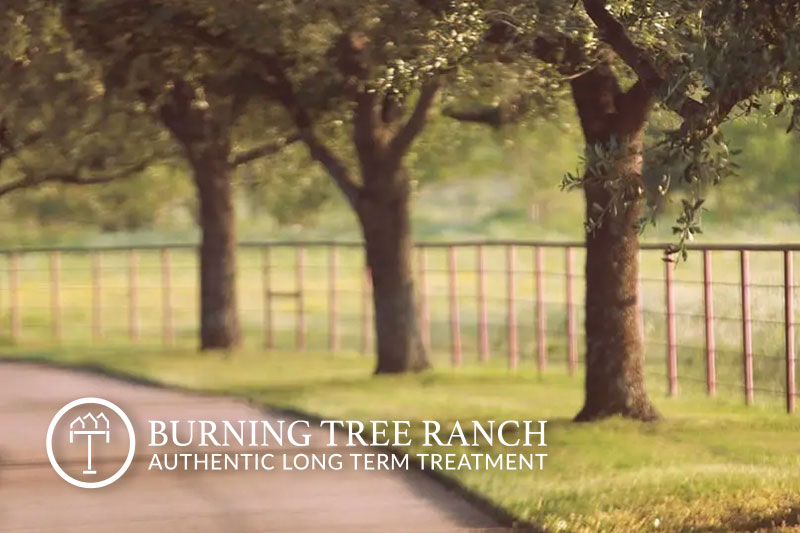The families we work with at Burning Tree all face unique circumstances around their loved one’s addiction. However, the undeniable financial impact for families is a common thread that connects our clients, especially when facing chronic relapse.
Repeat attempts at finding sobriety can be expensive – both in direct costs like attending treatment programs and through indirect avenues like lost income, diminished productivity, & missed opportunities for career advancement.
Financial concerns are often an initial piece of resistance to pursuing treatment programs, while simultaneously acting as significant motivation for families to finally invest in resources that bring lasting sobriety for their loved one. Eventually, the growing costs of seeking sobriety becomes the elephant in the room.
Chronic Relapse at a Glance
Before we dive into the financial aspects, it’s important to understand what chronic relapse looks like.
Individuals caught in this cycle often display certain characteristics:
- Multiple failed attempts at sustained sobriety
- Difficulty accepting full responsibility for their recovery
- A tendency to blame external factors for setbacks
- High capacity for persuasion and manipulation
- Resistance to long-term treatment options
The cycle of addiction and relapse is complex, often intertwined with underlying mental health issues, trauma, or unresolved personal problems. Each relapse can deepen the addiction, making recovery more challenging and, consequently, more expensive.

Direct Financial Costs of Addiction & Relapse
The most obvious financial impact of chronic relapse comes from direct expenses related to substance abuse and treatment attempts. These are the ones most individuals and their families think about when evaluating professional addiction treatment.
Cost of Treatment Professionals & Rehab Programs
The financial burden of chronic relapse often begins with the repeated costs of professional treatment and rehab programs, either inpatient or outpatient. Individuals struggling with chronic relapse find themselves paying for multiple stints in detox facilities, each costing thousands of dollars.
Detox is often followed by repeated inpatient rehab programs, which can run tens of thousands of dollars depending on the facility & length of treatment.
Aftercare programs & ongoing mental health therapy is a necessity, adding hundreds of dollars a week over weeks and months. Even after completing these programs, ongoing outpatient therapy sessions are typically necessary, adding hundreds of dollars per week to the total.
Over time, the expense for treatment alone can accumulate to staggering amounts, placing significant strain on personal and family finances.
Cost of Legal Fees
Chronic relapse often intersects with legal troubles, introducing another layer of financial burden. These commonly include DUI or drug possession charges, each potentially resulting in thousands of dollars in fines, legal representation fees, and court costs.
Many individuals with drug or alcohol related charges will find themselves mandated by a court to attend treatment programs, adding to their already mounting expenses. Probation or parole fees can also become a regular financial obligation lasting for months or years.
In some cases, substance-related incidents may lead to civil lawsuits, opening up the possibility of hefty settlements or judgments. These legal consequences not only drain immediate financial resources but can also have long-lasting impacts on an individual’s ability to secure employment or housing, further complicating their financial recovery.
Cost of Medical & Healthcare Expenses
The cumulative effect of addiction on physical health is well known to our families. Medical costs, with or without insurance, can add up, especially for repeat treatment attempts.
Emergency room visits due to overdoses, accidents, or other substance-related crises can result in bills running into tens of thousands of dollars.
Sustained & repeated substance abuse takes a heavy toll on the body. Treatment for substance-related health issues – such as liver disease, heart problems, or infections – can lead to regular medical expenses that persist even in sobriety. If we include mental health treatments or psychiatric care, and medications – this adds another layer to the total healthcare cost.

Indirect & Hidden Costs of Addiction
Beyond the obvious expenses, chronic relapse can have far-reaching indirect financial consequences:
Lost Income and Productivity
When you’re addicted to a substance, it takes a significant toll on an individual’s ability to maintain steady employment and income. Those in addiction usually experience frequent job loss or extended periods of unemployment. Individuals may also actively seek reduced hours, or engage in reduced quality of work and overall productivity, that ultimately affects their total compensation.
Impact on Career Advancement
The long-term consequences of chronic relapse on career advancement can be devastating. Individuals often miss out on opportunities for promotions or raises due to inconsistent job performance, frequent absences, or unreliability.
Repeat relapse and treatment attempts tend to leave noticeable gaps in employment history, making it difficult to secure new job opportunities.
For those in professions requiring licenses or certifications, maintaining these credentials becomes increasingly difficult. Substance abuse can potentially result in the loss of professional standing. These setbacks can have a compounding effect, limiting earning potential and career growth for years to come, even after achieving sustained sobriety.
Strain on Family Finances
Individuals in addiction are rarely completely responsible for their finances and the associated costs of repeat treatments. In reality, it’s the families and loved ones that push the addicted individual to get treatment out of the love and concern they have for the person.
Families know addiction can be a life-or-death situation. Household resources are often diverted to support the addicted individual, whether through directly funding treatment attempts, covering living expenses during periods of unemployment, or managing legal fees. Each treatment attempt incurs larger costs or adds new debts, but families know it’s worth it as long as their loved one can be healed.
The redirection of funds can deplete savings accounts, impact the family’s ability to meet their own financial obligations, or force the liquidation of assets.
Long-Term Financial Consequences for the Addicted Individual
The addicted individual, whether they realize it or not, usually experiences some form of lasting financial consequences even after establishing a life in recovery.
- Accumulation of Debt: Repeated treatment attempts, legal fees, and periods of unemployment can lead to substantial debt.
- Damage to Credit Scores: Missed payments, maxed-out credit cards, and potential bankruptcies can severely impact credit scores.
- Difficulty Securing Loans or Housing: Poor credit and unstable employment history can make it challenging to secure loans, rent apartments, or buy homes.
These lasting consequences can persist into recovery, creating obstacles to financial stability and independence, in turn increasing the risk of relapse.

The Ripple Effect on Families
The financial impact isn’t limited to the addicted individual. It’s often families and loved ones that assume some of – or all of – the cost, both direct and indirect.
- Direct Financial Burden: Families often bear the brunt of treatment costs, legal fees, and other expenses.
- Impact on Family Stability: The drain on resources can affect the family’s overall financial health, impacting everything from daily living expenses to long-term savings and retirement plans.
- Strained Relationships: Financial stress can exacerbate already tense family dynamics, potentially leading to further emotional and economic instability.
Regaining Financial Control by Investing in Long-Term Treatment
While the financial costs of chronic relapse are significant, we know from experience that there’s hope in breaking this cycle through comprehensive, long-term treatment. When viewed through a financial lens, long-term treatment is an investment that proves to be much more cost-effective in the long run.
What Does it Mean to Undergo Long-Term Treatment?
Burning Tree is the Nation’s only authentic long-term treatment provider specializing in the treatment of chronic relapse. We address life and death matters as they relate to chronic addiction and mental health.
- Focus On Identifying Complex Emotional And Mental Health Disorders
- Emphasis On Treating Advanced Stages of Addiction And Relapse
- Multi-Phased Long-Term Continuum Aimed At Permanent Recovery
- Concentration On Dynamic Behavioral, Attitudinal, and Personality Change
- Treatment Duration Informed By Measurable, Provable Progress - Not Time
Establishing Financial Independence in Recovery
Putting a stop to the growing financial burden of addiction requires the individual in question to pursue a recovery that incorporates aspects of financial accountability and independence. While we work with families on a case-by-case basis to individualize aftercare with Burning Tree, below are a few essentials:
1. Begin & End with Financial Transparency: Be open with family members about finances to rebuild trust and work together towards financial stability.
2. Create a Short & Long-Term Financial Plan: Work with a financial advisor or counselor to assess your current situation and set realistic goals.
3. Address Outstanding Debts: Develop a strategy for paying off debts, potentially including negotiating with creditors or exploring debt consolidation options.
4. Monitor & Rebuild Credit: Start small with secured credit cards or becoming an authorized user on a family member’s account.
5. Honesty & Accountability: It’s critical to practice honesty and accountability from all parties involved – the addicted individual, their family, as well as treatment professionals.

Financial Damage is Just One Consequence of Addiction
At Burning Tree, we’re intimately familiar with the financial struggles families face as it relates to their addicted loved ones. Our deep understanding of the family dynamic and unique financial situation is one of the things that sets us apart from other treatment programs.
Lasting recovery brings with it the opportunity to regain control over your financial life. It’s a journey that requires commitment, support, and often professional help, but the rewards – both personal and financial – are immeasurable.
The road to recovery may be long, but with each step forward, you’re investing in a future free from the financial burden of addiction. Remember, investing in quality long-term treatment and comprehensive support now can lead to a lifetime of benefits, both in terms of health and financial stability.
Until next time,
Brook




